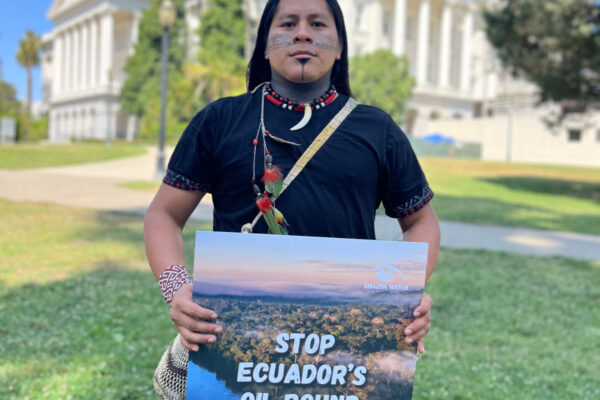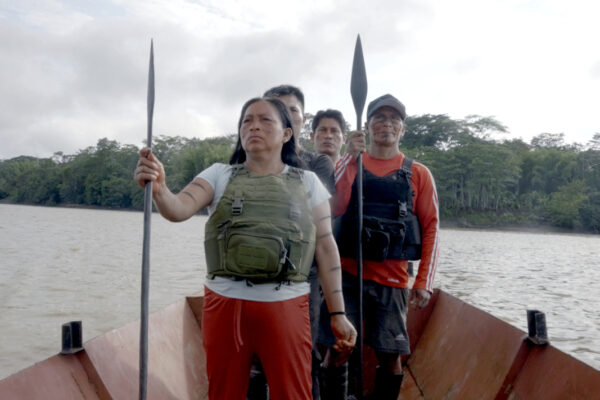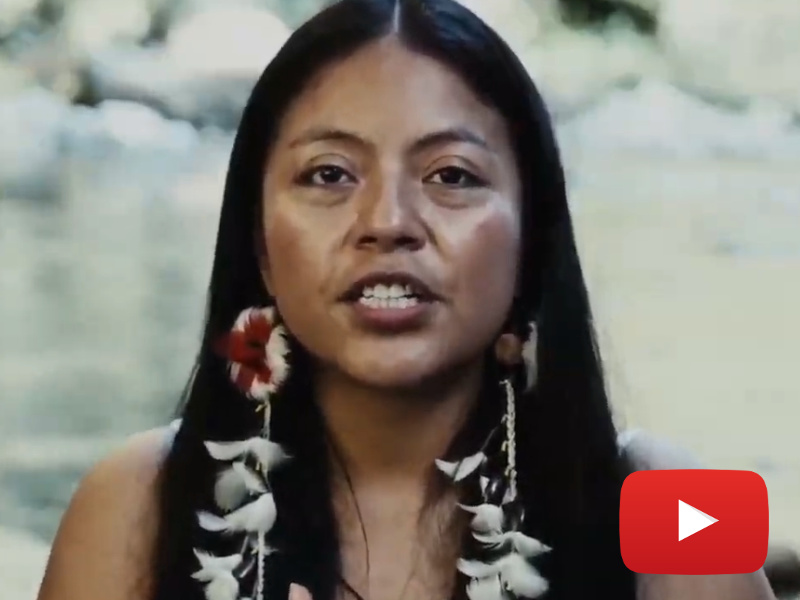Last month, when a North Dakota jury handed down a patently absurd $666.9 million verdict against Greenpeace in the Energy Transfer v. Greenpeace case, the shockwaves were felt far beyond the courtroom. This was not just a legal judgment; it was a calculated blow against environmental advocacy, Indigenous sovereignty, and our right to speak truth to power. I was in the courtroom as part of an independent monitoring committee that tracked every aspect of the 21-day trial. For those of us at Amazon Watch and across the global climate justice movement, the message in North Dakota was clear: our voices are under attack.
The lawsuit – a textbook Strategic Lawsuit Against Public Participation (SLAPP) – was brought by Energy Transfer Partners (ETP), the fossil fuel behemoth behind the infamous Dakota Access Pipeline (DAPL). Its target? Greenpeace’s peaceful, legal support of the Indigenous-led resistance at Standing Rock. In targeting Greenpeace, ETP is attempting to criminalize solidarity and recast human rights advocacy as conspiracy. Its CEO, Kelcy Warren, admitted as much, saying he wanted to hurt Greenpeace and has even said he’d like “green activists removed from the gene pool.”
Standing Rock Sioux Tribal Chairwoman Janet Alkire put it best: “The jury’s decision in North Dakota is an insult to our sovereignty, to our rights, and to our struggle to protect our water and lands.” Most of the mainstream coverage of this case doesn’t even mention the Chairwoman’s statements, let alone the tribe’s continued insistence that ETP and DAPL continue to violate their rights and territories.
ETP would like nothing more than to erase these Water Protectors, but we will not allow that to happen. We must never forget that the iconic movement to stop the DAPL was led by the Oceti Sakowin, the Seven Council Fires of the Sioux Nation. The world joined that movement because it was a just cause: protecting sacred water, defending treaty rights, and rejecting the long legacy of environmental racism. Now, fossil fuel corporations and their legal bullies are using their wealth and influence not just to pollute but also to prosecute.
SLAPPs are a key tool in this repression strategy. Designed to drain resources and silence dissent, these lawsuits are an affront to democratic values. Gibson Dunn – the law firm representing ETP – has built a reputation for deploying SLAPP tactics to protect corporate polluters. Their role in Chevron’s attacks on Indigenous communities in Ecuador is well documented, and now they are replicating that playbook in the U.S.
This is not just about Greenpeace. This is about all of us. The verdict has opened the door to more copycat lawsuits, more attempts to bankrupt advocacy groups, and more efforts to stifle public participation. We are already hearing reports of other industries asking, “How can we do this, too?” The chilling effect is real, and it is immediate.
As we affirmed in our recent statement of solidarity, Amazon Watch stands with Greenpeace and the Standing Rock Sioux Tribe because we know what it means to face corporate retaliation. In Ecuador, Indigenous nations and campesino communities have endured decades of legal warfare for daring to hold Chevron accountable.
What’s happening in North Dakota is part of the same global pattern.
We also echo the urgent call made by the Trial Monitoring Committee, outlining how it violated due process, relied on a biased jury with ties to the oil and gas industry, and included shocking judicial misconduct. One juror admitted they didn’t understand the basic legal standard of burden of proof. Another was related to law enforcement involved in the #noDAPL protests.
This is not justice. Greenpeace will appeal, and they need all of us to mobilize in a massive international movement in support of their efforts to expose this sham trial.
These attacks are happening in the broader context of a growing crackdown on civil society across the U.S. The right to protest, to publish dissenting views, and to build collective power is being undermined by both government and private actors. And, as always, it is Black, Indigenous, and other frontline communities who bear the brunt of this repression.
We must rally together in 2025 to resist this onslaught. Environmental organizations, free speech advocates, journalists, and human rights defenders must unite to defend our shared values. We need stronger anti-SLAPP laws at the federal level. We need judicial accountability. And we need unwavering solidarity with those who are targeted.
The fight for free speech is the fight for environmental justice. And the fight for Indigenous rights is the fight for our collective future.
Like Greenpeace, we will not be silenced.














